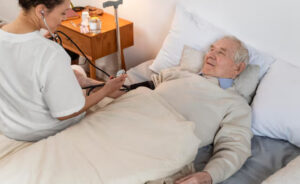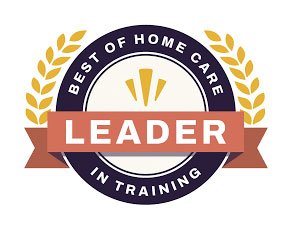If you or a loved one is starting hospice in Georgia, medications can feel overwhelming at first. This guide explains common hospice medicines, how they are used for comfort, how costs work under Medicare, and the safety steps your team takes in Georgia. You will learn what belongs in a Comfort Kit, how to store and dispose of medications, and the role your hospice nurse plays in adjusting doses so you can focus on time together.
What Families In Georgia Ask First

Will these medications make my loved one sleep all day? Not when used correctly. Hospice medications are started at low doses and increased only as needed to ease discomfort. Your nurse monitors for side effects and adjusts the plan so the person stays as alert and comfortable as possible. For example, opioids like morphine can ease shortness of breath and pain when titrated carefully, and constipation is proactively prevented.
What will this cost? Under Medicare, most comfort medications related to the terminal diagnosis are covered. During routine home care or continuous home care there may be a small copay that is capped per prescription. During general inpatient care or respite care there is no medication coinsurance. Ask your nurse to review what is covered for your case.
The Role Of Your Hospice Nurse And Physician
Your hospice nurse is your day-to-day guide. The nurse:
- Reviews all current prescriptions and over-the-counter products
- Creates a symptom plan with the hospice physician and your attending doctor
- Starts with the smallest effective dose and adjusts based on your goals
- Teaches what each medication is for, when to give it, and what to watch for
- Checks interactions and builds a bowel plan when opioids are used
You will also have an on-call nurse for urgent medication questions at night and on weekends. If symptoms escalate, your team may recommend short-term continuous home care or a brief inpatient stay to stabilize comfort.
Hospice in Georgia: Comfort Kit
Most hospices provide a small supply of “just in case” medicines so you can treat common symptoms quickly, especially after hours. You should only use these medicines after your nurse instructs you. Contents vary by diagnosis and allergies, but a typical kit for physical support may include:
- Pain and shortness of breath: oral morphine solution or tablets, or an alternative opioid
- Anxiety or restlessness: lorazepam
- Delirium or severe agitation: haloperidol or another antipsychotic as directed
- Nausea: ondansetron or metoclopramide
- Respiratory congestion: atropine or glycopyrrolate drops
- Fever or mild pain: acetaminophen suppositories or tablets
- Constipation prevention: senna or polyethylene glycol
Your nurse will label each item and document when to use it. Comfort Kits reduce avoidable ER trips and keep care calm at home.
How Safety Works At Home
Your team follows a simple safety playbook:
- Start low, go slow. Doses begin at the smallest effective amount.
- One change at a time. This reduces side effect confusion.
- Bowel plan from day one if opioids are used.
- Medication log. Families track what was given and when.
- Secure storage. Use a lockbox for controlled medicines and keep them out of reach of children and visitors.
- Naloxone awareness. Families learn what to do for a suspected opioid overdose and how naloxone works while 911 is on the way.
Tips for Storage And Disposal in Georgia
- Secure storage: Keep controlled medicines locked and count supplies regularly. Your nurse can help set up a routine and answer questions about the Georgia Prescription Drug Monitoring Program as it relates to your care.
- When medications are stopped or no longer needed: Do not throw them in the trash or flush unless your nurse instructs you. Use law-enforcement drug drop boxes or community take-back programs when available. Fulton County lists locations and explains how drugs are transferred for safe destruction. The Georgia Attorney General’s site also outlines safe disposal steps.
- Who disposes of meds: In general, families manage disposal. Georgia does not require a hospice to remove a patient’s opioids, although federal rules permit certain hospice staff to assist under specific conditions. Ask your nurse what support is available at discharge or after a death.
Who Pays For Hospice Medications in Medicare
If you are wondering who pays for hospice medications, Medicare generally covers drugs tied to comfort and the terminal diagnosis, with delivery coordinated through your hospice pharmacy.
- Covered medications: Drugs related to the terminal diagnosis and comfort are usually provided by the hospice and delivered to the home.
- Cost sharing: During routine home care or continuous home care, there may be a small copayment that is capped per prescription.
- No copays for meds during general inpatient or respite care.
- What families should do: Keep your hospice pharmacy as the single source and tell your team before filling anything new to avoid interactions and unexpected bills.
What To Keep On Hand in Alpharetta and Fulton County
- Your Comfort Kit with clear, nurse-written instructions
- A lockbox for controlled medicines
- A medication log sheet and pen near the bedside
- Bowel regimen supplies if an opioid is used
- A working thermometer and pulse oximeter if your team recommends them
- The on-call nurse number, posted near the phone, for questions any time of day or night
Signs That Your Plan May Change
Visit frequency and medication plans often change when symptoms shift:
- New or breakthrough pain
- Shortness of breath at rest
- Restlessness, confusion, or sleeplessness
- Nausea that does not respond to the first plan
- Fast decline in strength or alertness
Your nurse may increase home visits, start continuous care for a short period at home, or recommend a brief inpatient stay to regain control before returning home. Comfort stays at the center of every decision.
How We Support You In Metro Atlanta
You receive coordinated help across Alpharetta, Fulton County, and surrounding communities:
- A nurse case manager who adjusts medications around your goals
- A 24-hour on-call nurse for urgent questions and after-hours Comfort Kit guidance
- Physician oversight for complex situations or rapid changes
- Social work and chaplain support for the emotional and spiritual side of care
- A clear plan for secure storage and disposal of unused medicines, including local options and take-back guidance
Get Hospice Care at Home in Georgia
Speak With Us About Medications Today
Call (470) 395-6567 or send a message to us at our contact page. We serve Alpharetta, Fulton County, and neighboring metro Atlanta communities with comfort-focused care you can trust.




